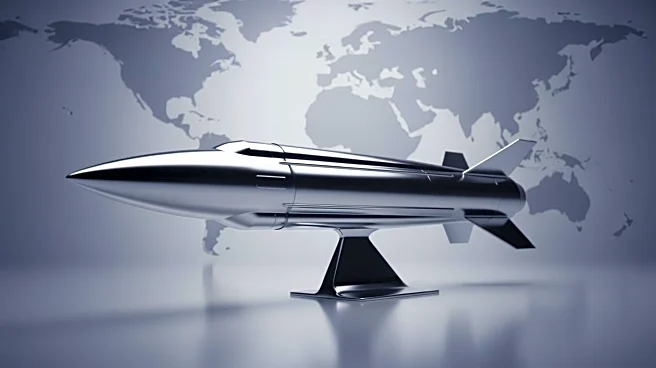What's Happening?
President Trump is scheduled to meet with Ukrainian President Volodymyr Zelenskyy at the White House to discuss military support, specifically the potential sale of long-range Tomahawk cruise missiles to Ukraine. Despite previous openness to the idea,
Trump has shown reluctance following a phone call with Russian President Vladimir Putin, who warned that such a move could damage U.S.-Russia relations. Zelenskyy argues that acquiring these missiles would enable Ukraine to target critical Russian infrastructure, potentially pressuring Putin into negotiations. This meeting marks the fourth face-to-face encounter between Trump and Zelenskyy since Trump returned to office, highlighting the ongoing diplomatic efforts to resolve the conflict.
Why It's Important?
The hesitation to supply Ukraine with Tomahawk missiles underscores the delicate balance the U.S. must maintain in its foreign policy, particularly in relation to Russia. Providing these weapons could escalate tensions between the U.S. and Russia, affecting global diplomatic relations and potentially leading to further conflict. For Ukraine, the acquisition of such military capabilities is seen as crucial for defending against Russian aggression and reclaiming lost territories. The decision holds significant implications for U.S. foreign policy priorities, military strategy, and international alliances, as well as the broader geopolitical stability in Eastern Europe.
What's Next?
President Trump plans to meet with Putin in Budapest to discuss potential resolutions to the Ukraine conflict. Additionally, senior aides, including Secretary of State Marco Rubio, are expected to engage in further diplomatic discussions. The outcome of these meetings could shape future U.S. involvement in the conflict and influence the dynamics between Ukraine and Russia. The possibility of indirect negotiations between Zelenskyy and Putin, as suggested by Trump, may also emerge as a viable path forward, depending on the willingness of both leaders to engage in dialogue.
Beyond the Headlines
The situation highlights the complexities of international diplomacy, where military aid decisions can have far-reaching consequences beyond immediate battlefield outcomes. Ethical considerations regarding arms sales and their impact on civilian populations are also pertinent. The evolving U.S.-Russia relationship, influenced by military and diplomatic strategies, could lead to long-term shifts in global power structures and alliances.















